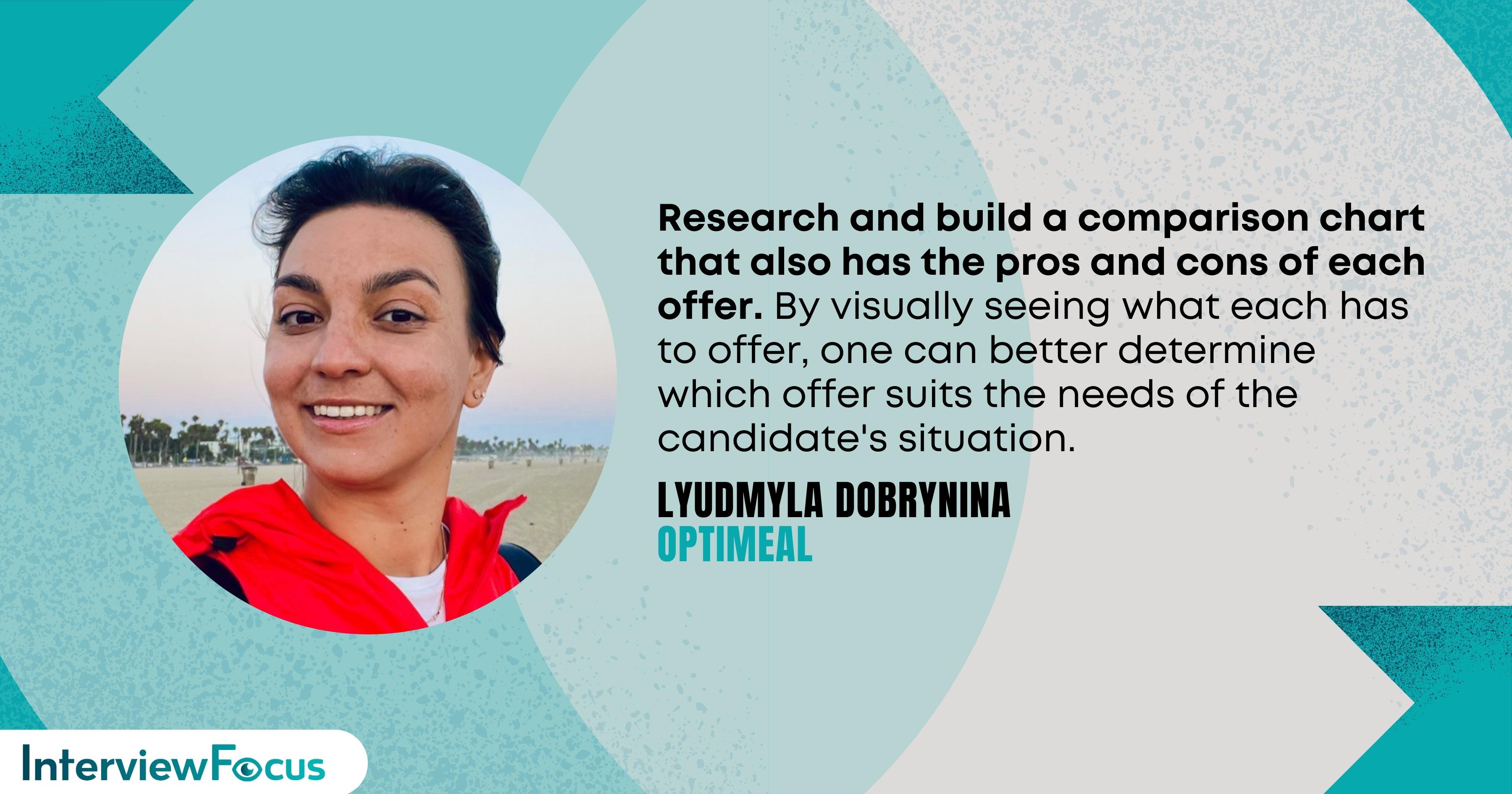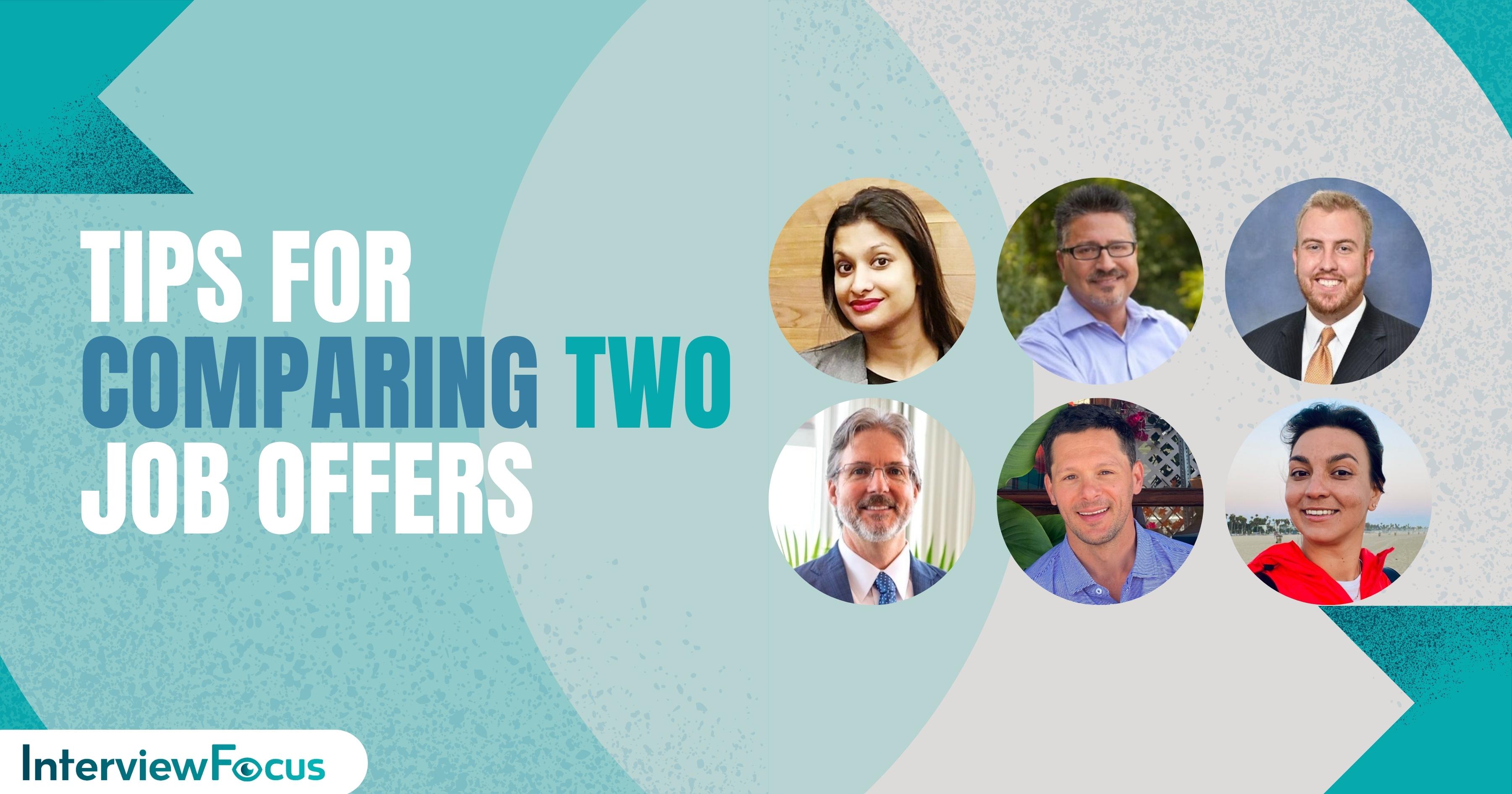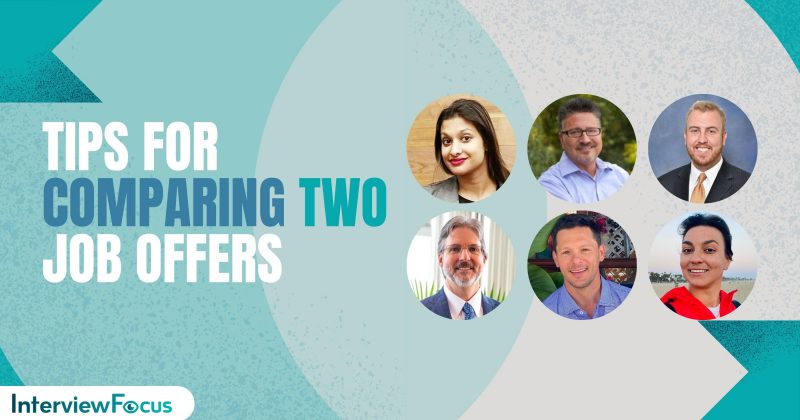What is one tip for a candidate that is comparing two job offers?
To help you best compare and choose between two job offers, we asked career coaches, recruiters and hiring managers this question for their best tips. From understanding the growth potential of each offer to building a comparison chart with pros and cons, there are several tips that would aid candidates in deciding which job is better among any two they are offered.
Here are eight tips these leaders offer candidates for comparing two job offers:
- Understand the Growth Potential of Each Offer
- Picture Yourself in Both Roles When Comparing Offers
- Review Learning Opportunities
- Always Take the Offer With the Best Leader
- Consider Scheduling Flexibility
- Ask Yourself if the Workplace Culture Suits You
- Choose the One that Matches Your Values
- Build a Comparison Chart With Pros and Cons
Understand the Growth Potential of Each Offer
Aside from picking the team/manager that you get along best with, select the company that is invested in employee growth and offers a clear path for progression. That’s where the best long-term fit will be and where you know your career goals will be nurtured. Find out what the performance management and promotion process is, as well as what kind of learning and development opportunities will be available to you.
Sam Basu Farreca, Culture Strategy
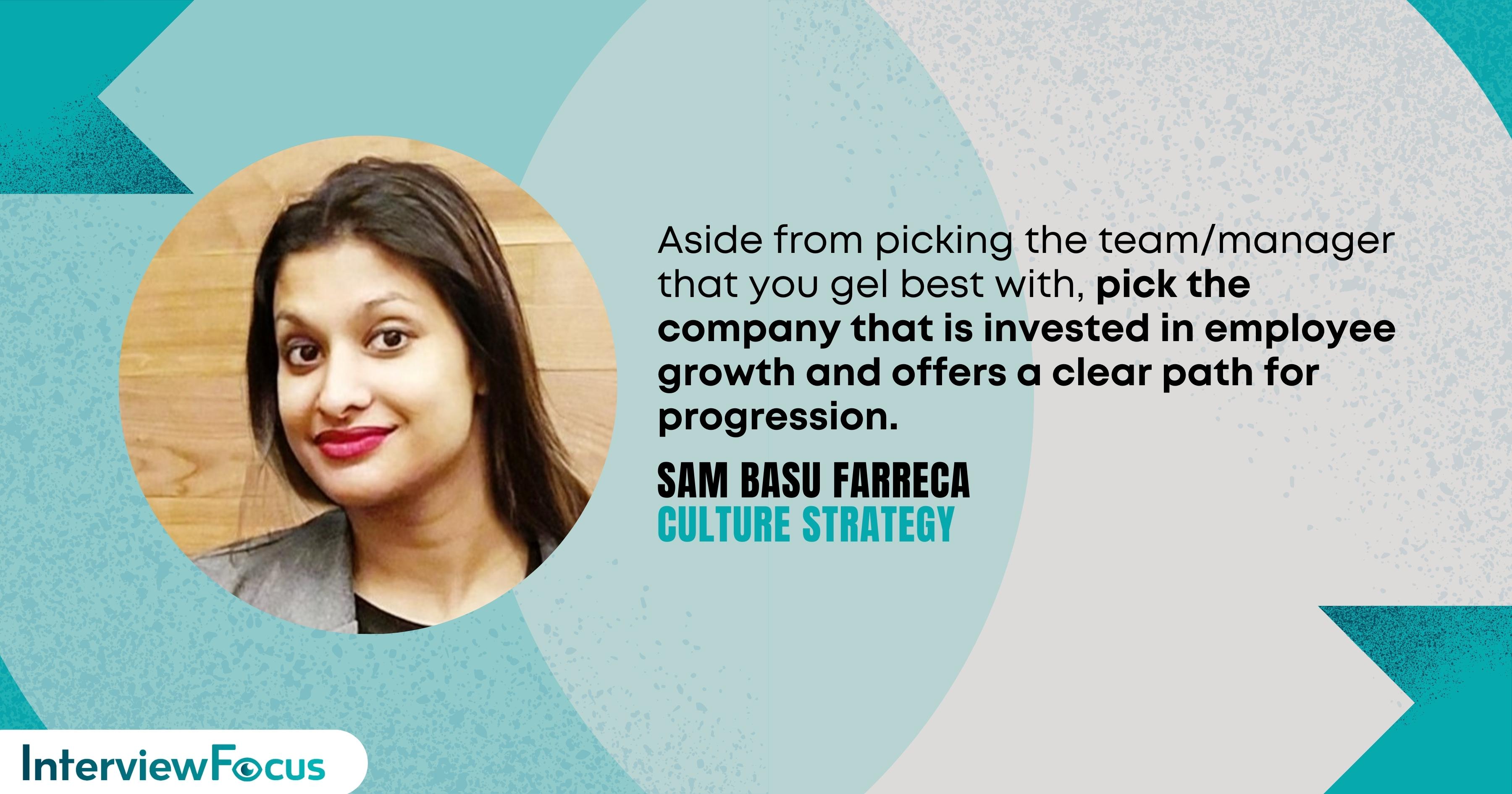
Picture Yourself in Both Roles When Comparing Offers
Using your intuition (based on past experiences) is a great way to make the difficult choice between two jobs. Mentally and visually picture yourself in each position and think about what your average day would look like within each role. From the start of the workday until the end of the workday, consider which job gets you more excited and why the other job seems less interesting. Base your visualization on your impression of the company, your new coworkers, and the job responsibilities to decide which role comes out the victor.
Ronald Kubitz, Forms+Surfaces
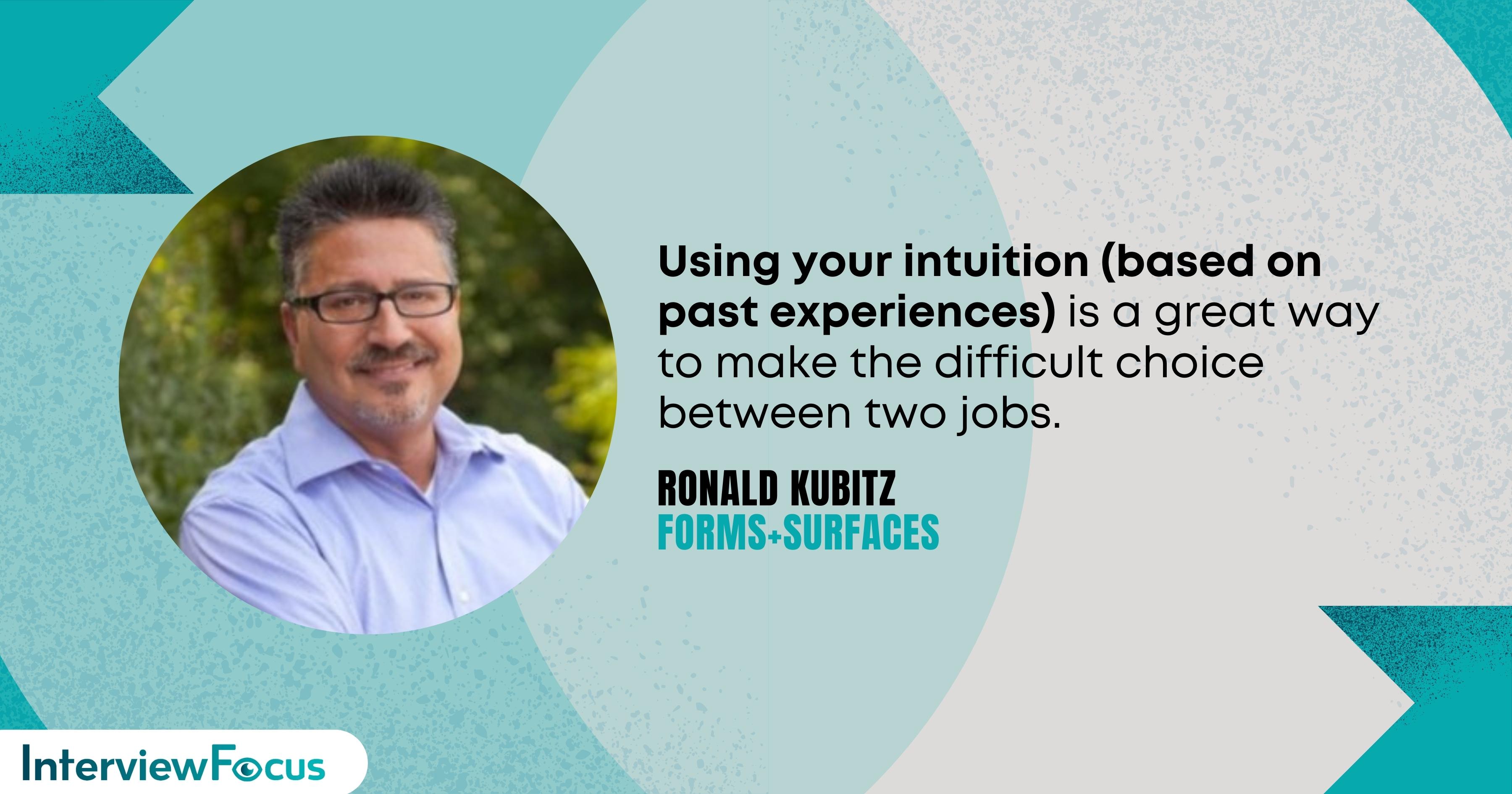
Review Learning Opportunities
Some companies out there are well-known for the learning opportunities they provide. And even when a candidate has another offer that seems better at first glance, the far better choice would be heading to the organization that associates itself with learning. As individuals navigate their career path, they realize that the stints that taught them enough to make that next big jump were far better than the ones that paid them well or even offered them better positions. After all, in the long term, or even when you consider the later stages of your career, it is what you know about an industry and job profile that matters more than your remuneration or position.
Riley Beam, Douglas R. Beam, P.A.
Always Take the Offer With the Best Leader
The offer working for the best leader is generally the offer to accept, assuming that the two offers are generally similar in comp and benefits. A good leader will spend the energy and time helping you get off to a good start. They will support and help you grow in the company, leading to promotions and an increase in compensation. Ask to speak with some of the employees who report to the leader and ask about the leader’s style. Also ask the leader for examples of employees that they have hired and how they have developed them and helped them be successful.
Scott Baker, Stage 3 Leadership
Consider Scheduling Flexibility
If you’re trying to decide which is the better option between two job choices, be sure to keep scheduling flexibility in mind. After the pandemic, many employees found it difficult to go back to a traditional 9-to-5 environment. However, a lot of companies are now offering either hybrid or strictly remote working models, along with more time off with reimbursement. Decide which environment suits you the best, and then make that your tie-breaker in these situations.
Mark Sider, Greater Than
Ask Yourself if the Workplace Culture Suits You
Before you make a decision, look into the workplace culture of both companies to decide which one suits you best. If you’re someone who is more laidback and autonomous, a culture that promotes the ‘hustle’ or has a fast-paced environment may challenge you in the short-run but drain you as time goes by. Thus, evaluating a company’s culture is a crucial aspect of deciding which job opportunity to pursue.
Marc Roca, 4WD Life
Choose the One that Matches Your Values
There are undoubtedly myriad job opportunities that may cross your path during your professional tenure. However, it’s crucial to find ones that you enjoy and that contribute to your growth in the long term. One way to identify the right opportunity is by looking into the company’s values and evaluating if they align with yours. If the values do match, you’re more likely to have a seamless experience and minimize any unnecessary friction.
Benoit Lacroix, Portmoni
Build a Comparison Chart With Pros and Cons
Research and build a comparison chart that also has the pros and cons of each offer. By visually seeing what each has to offer, one can better determine which offer suits the needs of the candidate’s situation. Sections within the chart that are helpful other than pay and benefits are the work environment and coworkers, as well as if the company culture aligns with the candidate’s personal values.
Lyudmyla Dobrynina, Optimeal
